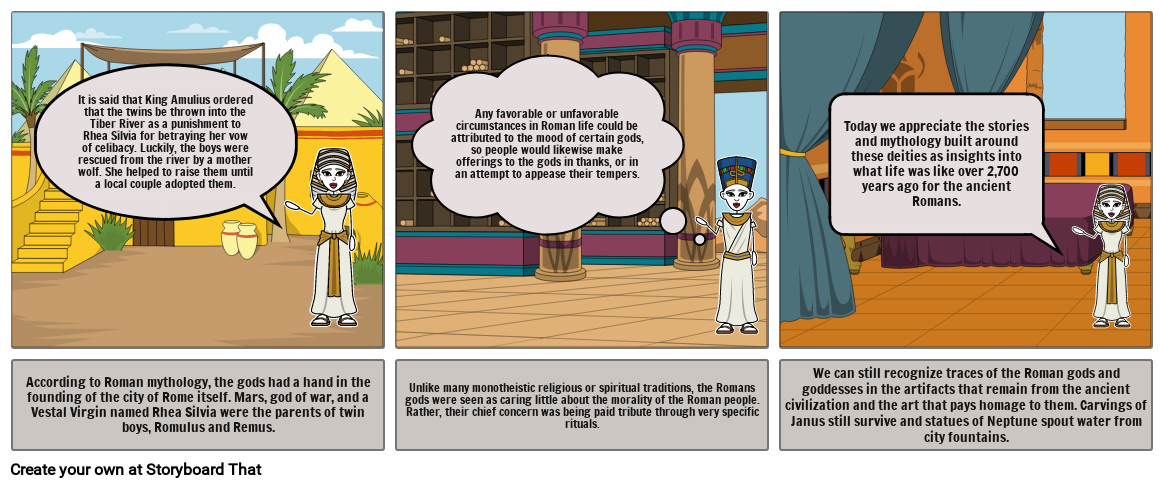Roman God/ Goddess

Storyboard Text
- It is said that King Amulius ordered that the twins be thrown into the Tiber River as a punishment to Rhea Silvia for betraying her vow of celibacy. Luckily, the boys were rescued from the river by a mother wolf. She helped to raise them until a local couple adopted them.
- Any favorable or unfavorable circumstances in Roman life could be attributed to the mood of certain gods, so people would likewise make offerings to the gods in thanks, or in an attempt to appease their tempers.
- Today we appreciate the stories and mythology built around these deities as insights into what life was like over 2,700 years ago for the ancient Romans.
- According to Roman mythology, the gods had a hand in the founding of the city of Rome itself. Mars, god of war, and a Vestal Virgin named Rhea Silvia were the parents of twin boys, Romulus and Remus.
- Unlike many monotheistic religious or spiritual traditions, the Romans gods were seen as caring little about the morality of the Roman people. Rather, their chief concern was being paid tribute through very specific rituals.
- We can still recognize traces of the Roman gods and goddesses in the artifacts that remain from the ancient civilization and the art that pays homage to them. Carvings of Janus still survive and statues of Neptune spout water from city fountains.
Over 30 Million Storyboards Created
No Downloads, No Credit Card, and No Login Needed to Try!
